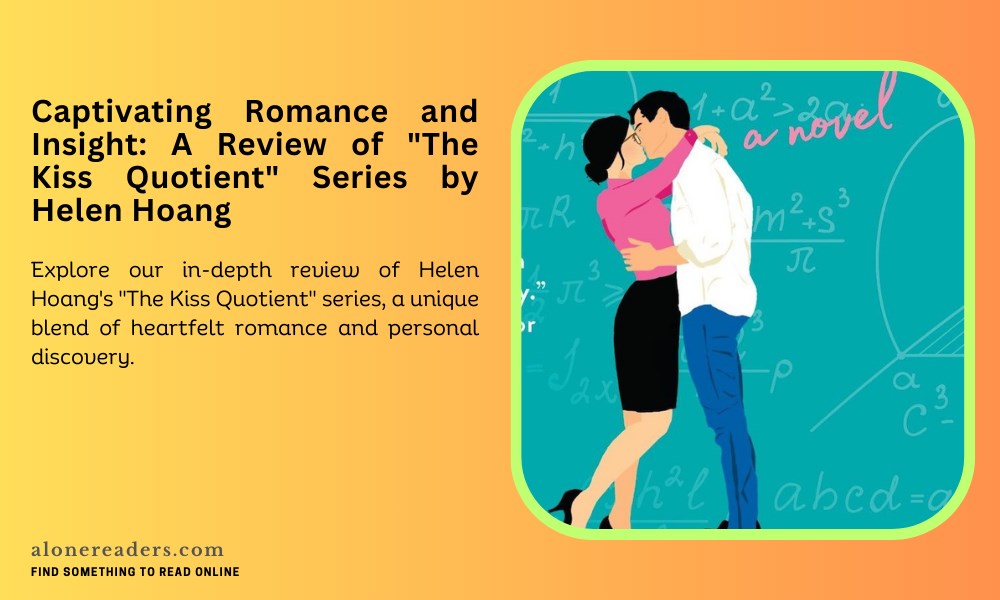
In the realm of contemporary romance, few series have sparked as much discussion and admiration as Helen Hoang's "The Kiss Quotient" series. From its debut, the series has offered readers a refreshing take on the romance genre through its unique blend of emotional depth, relatable characters, and sincere exploration of relationships from an often underrepresented perspective. Helen Hoang, with her personal experience and engaging narrative style, crafts stories that resonate deeply with those seeking both entertainment and understanding in their reading experiences.
"The Kiss Quotient," the first book in the series, introduces us to Stella Lane, a successful but socially awkward econometrician who struggles with romantic interactions due to her Asperger's Syndrome. In a pragmatic yet unconventional decision, Stella hires Michael Phan, a charming escort, to help her navigate the complexities of personal relationships. What begins as a straightforward arrangement blossoms into an intricate exploration of intimacy, consent, and emotional connectivity. Hoang writes with a keen awareness of personal boundaries and the importance of mutual respect, making the novel a standout in the realm of steamy romantic fiction.
Following the success of "The Kiss Quotient," Hoang continues to explore themes of love, identity, and personal growth in "The Bride Test." Here, we meet Khai Diep, who, like Stella, has autism, which impacts his ability to process emotions in traditional ways. His mother, fearing he will never find love on his own, brings Esme Tran from Vietnam to America as a potential bride. Esme, a hotel maid and single mother, seizes the opportunity, hoping for a better life for herself and her daughter. This second installment deepens the series' exploration of cultural differences and the complexities of love through characters who defy conventional romance tropes.
"The Heart Principle" rounds out the series by focusing on Quan Diep, Khai’s brother, and his relationship with Anna Sun, a violinist struggling with burnout and personal expectations. This novel shifts slightly in tone, emphasizing personal struggles with identity and the courage required to confront one's vulnerabilities. Hoang's portrayal of Anna's journey through mental health challenges and Quan's steadfast support combines to offer a poignant narrative about acceptance and self-discovery.
What sets the "Kiss Quotient" series apart is not just its inclusion of neurodiverse characters but how Hoang integrates these aspects into her storytelling without making them the sole focus. Her characters are full, vibrant individuals with complex emotions and realistic challenges, making them relatable to a wide audience. Additionally, Hoang's own background as a woman of mixed heritage with Autism Spectrum Disorder lends an authenticity to her narratives, enriching her characters’ experiences with genuine insights and emotions.
Furthermore, Hoang's writing shines in her ability to craft steamy scenes that are both explicit and consensual, showcasing a healthy, communicative model of sexuality that is often lacking in romantic fiction. Her attention to emotional detail and the inner lives of her characters allows the series to transcend traditional boundaries of the genre, offering a deeper, more comprehensive look at what it means to find someone who understands and accepts you wholly.
"The Kiss Quotient" series by Helen Hoang has undoubtedly left an indelible mark on the landscape of contemporary romance. Its blend of heartfelt romance, rich characterization, and thoughtful inclusivity makes it a must-read for fans of the genre and beyond. The series not only entertains but also enlightens, providing a narrative space where love transcends the barriers of societal norms and personal challenges. Whether you are drawn to the series for its spicy romance or its compassionate portrayal of diverse experiences, Helen Hoang's work promises to engage and inspire. This is contemporary romance at its most heartfelt and transformative.